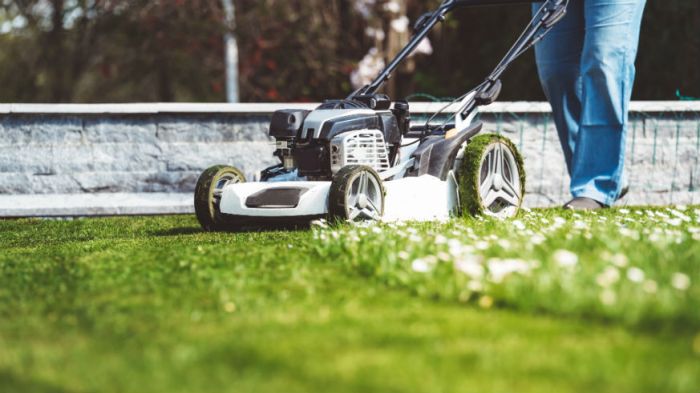Excellence in playing the piano, swimming and academics are just some of the requirements that many pushy parents ask of their children. It’s a phenomenon that experts are calling “hyper-parenting.” Related: Should your kids be taking probiotics? “Hyper-parenting is a phenomenon characterized by excessive attention to children,” explains Eva Millet, author of “Hyper Parenting.” “Parents understand that to be good parents, they must be aware of their children in an exaggerated way, solving their problems, anticipating them and doing things for them. Instead of raising and educating children, we seem to be managing them.” Related: How to make sure your toddler is getting the right nutrition The phenomenon of hyper-parenting emerged in the United States but has spread to other countries, especially among families of the middle and upper classes. Parents seek to “prepare” their children for the future, so they enroll them in the best schools, buy the newest toys, take them to all sorts of extracurricular activities with what they trust will provide them with brilliant results in their future. What is sought, according to Millet, is a perfect child. “Hyper-parenting involves an important economic investment and children become a status symbol,” she says. Hyper-parents are responsible for fearful children
There is a very fine line between parents who want the best for their children and those who are considered hyper-parents. The difference is that “a hyper-parent will not allow their child to fail, while the parent with common sense gives their child tools to face life so that they will learn autonomy and are individuals and not super people,” according to the writer. When raising overprotected children, there is an imminent risk of fearful children. Parents also suffer the consequences of an agitated child ‘agenda’, which is reflected in stress. The impact of this dynamic parenting falls mainly on women, who are directing most of the child’s activities. Children are also affected “since they often have an inflated notion of themselves: they are conceited because their entire lives they have been told they are super special and they will be able to get what they want,” says Millet. “They have tried everything, they are, as we say here in Spain, a little burnt (annoyed) with life. On the other hand, and this is a great inconsistency, they are unable to solve problems themselves. They are very confident in odd know-hows, like skiing, but do not know how to tie their own shoes.” Cristina Gutiérrez Lestón, educator and co-director of The Farm, a foundation that strives to improve education in Spain, concurs with Eva Millet and states that: “Children of hyper-parents are children with many fears. In the 32 years I’ve been working with children, I have never met so many children with so many fears. When we overprotect a child, what we create is a fear of failure, unhappiness and loneliness. When we have a child we must ask ourselves: who is educating your child – your fear or you? There are two types of parents: those that pave the way for their children and those that prepare their children for the path, so that when they leave home when they are 18, they are ready for whatever they find and overcome any adversity.” The consequences of hyper-parenting are not to be taken lightly. “Those children who are avoiding responsibility and who have everything solved for them by rule in adolescence are likely to have many disorders of all kinds because suddenly they are unarmed to face the world,” says Millet. For Lestón it is important to distinguish between love and hyper-parenting: “Loving a child is not getting the stones out of their way, it’s helping them understand that whatever they are or whoever they are, their parents will love them the same. We must trust our children so they can trust themselves as well.” In her daily work, she meets 13 and 14-year-old children who believe that they cannot do things alone. She has helped them discover that they can be alone and successful. The expert also reports that in Spain, 35 percent of students in their first semester of college take anxiolytics to inhibit anxiety because they have always got what they wanted, and have never been told no. Lestón says: “It is very sad to have to take a pill to help you get up in the morning because your mom or your dad never taught you as a child. You have to train your child for life. There are many emotional inadequacies that cause many problems at work, such as people who cannot communicate positively, and work together, or be supportive, so you have to start from when they are children.” Reversing hyper-parenting
Hyper-parenting can be reversed and the way to do this is to stop being aware of your child 24/7. This is rewarding for both parents and children. For children it is a burden to have dad and mom on top of them all day long. It is not about neglecting the child; children must be given kisses, hugs and a lot of confidence but it is what psychologist Maribel Martinez calls a “healthy disregard” or “underparenting.” This is when a parent is present and observing but not intervening at the first sign of upset. It is easier to spend all day making sure that nothing happens to your child. The hard part is watching your child make mistakes – now that for the parent is a tough exercise.” For the writer, the greatest danger is “that parents are so obsessed with their child that the family balance is broken. We can become stressed raising this super child that society seems to demands of us – it becomes crazy.” Related: How being a geek will make you a good parent Behind hyper-parenting there are those adults that are trying to make up for their own perceived missed opportunities or failings.
Finally, Millet advises: “Children should carry their own backpacks, so that they learn they are capable. You have to start giving them responsibilities to build their autonomy. We must stop asking them everything. They must be given tools, so that they can solve problems that arise. You mustn’t do their homework for them and take fewer pictures of them. They must rely on their own abilities. We do not have to pave the way for them, we have to prepare them for it.” For Lestón, readying a child for the real-world comes down to common sense and honesty: “Do not lie, do not deceive them into believing that they are living among cotton candy. Train them in all those skills that are important for life – those you as a parent think they will need, such as teamwork, positive communication and empathy.”
The dangers of hyper-parenting

iStock


















